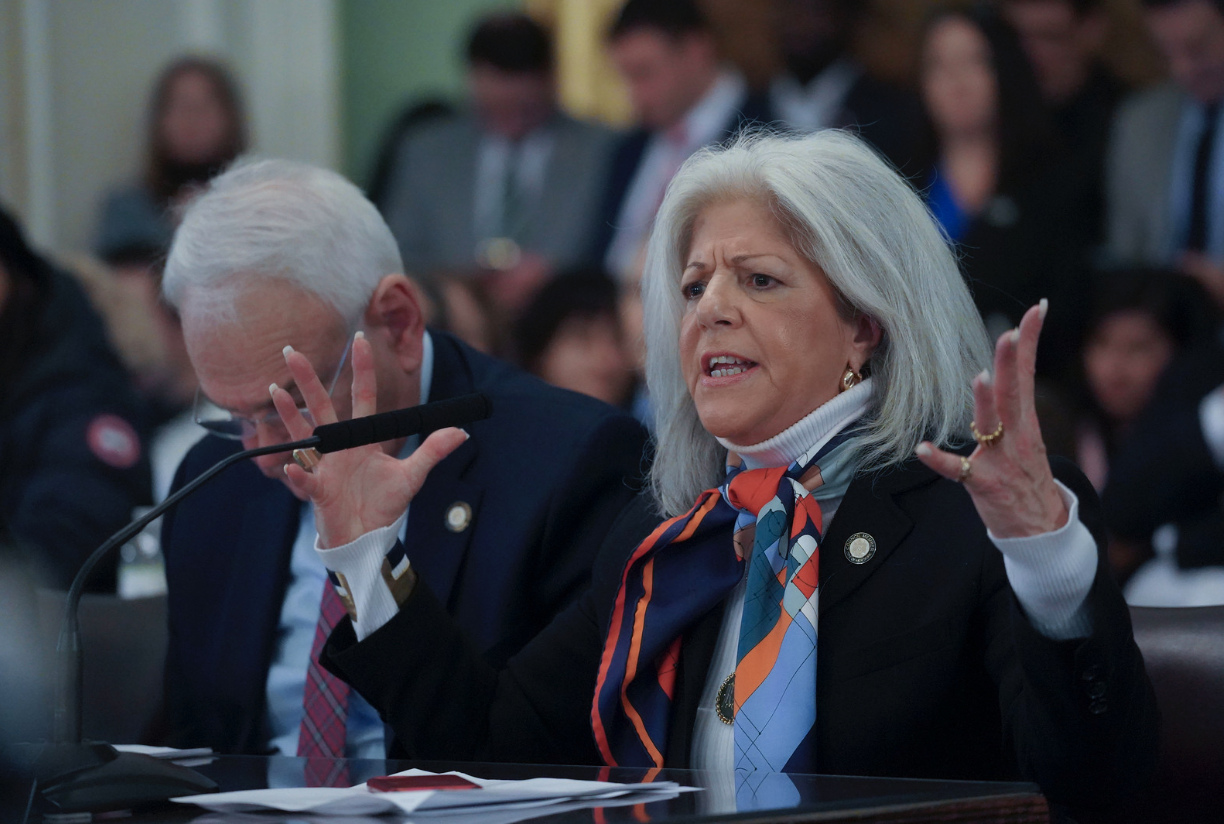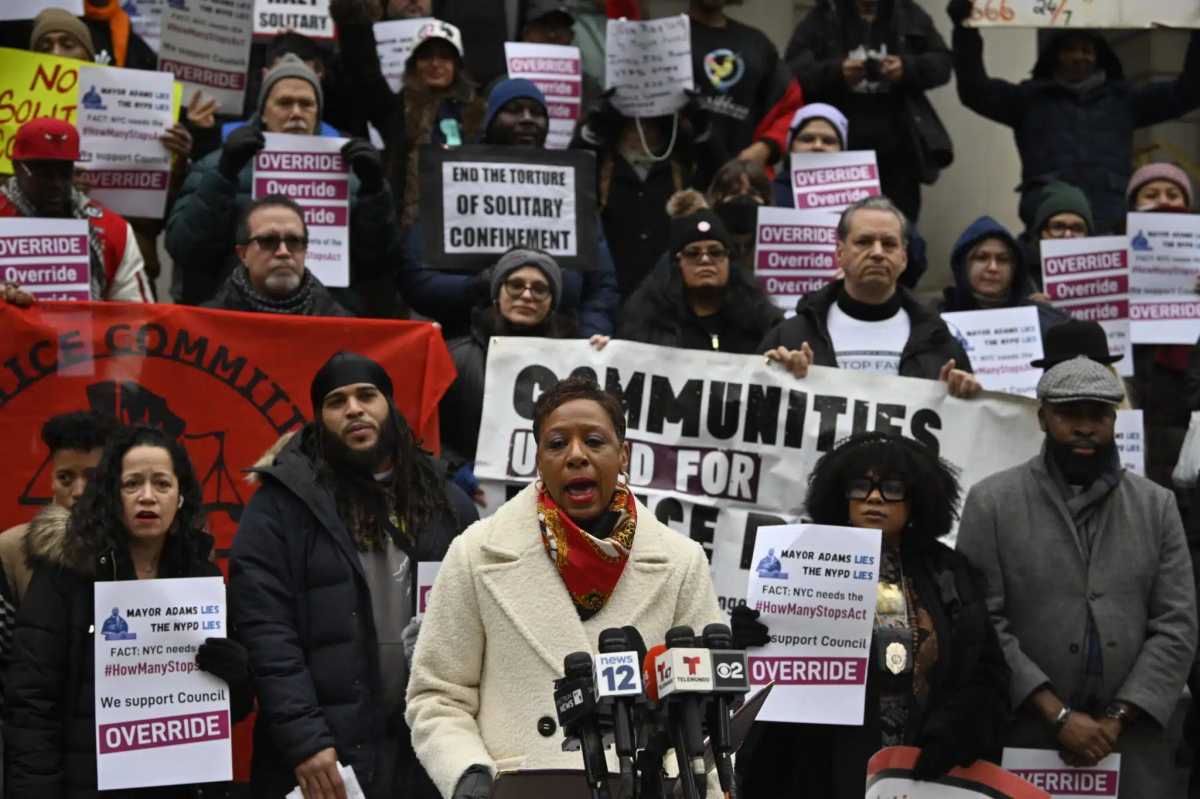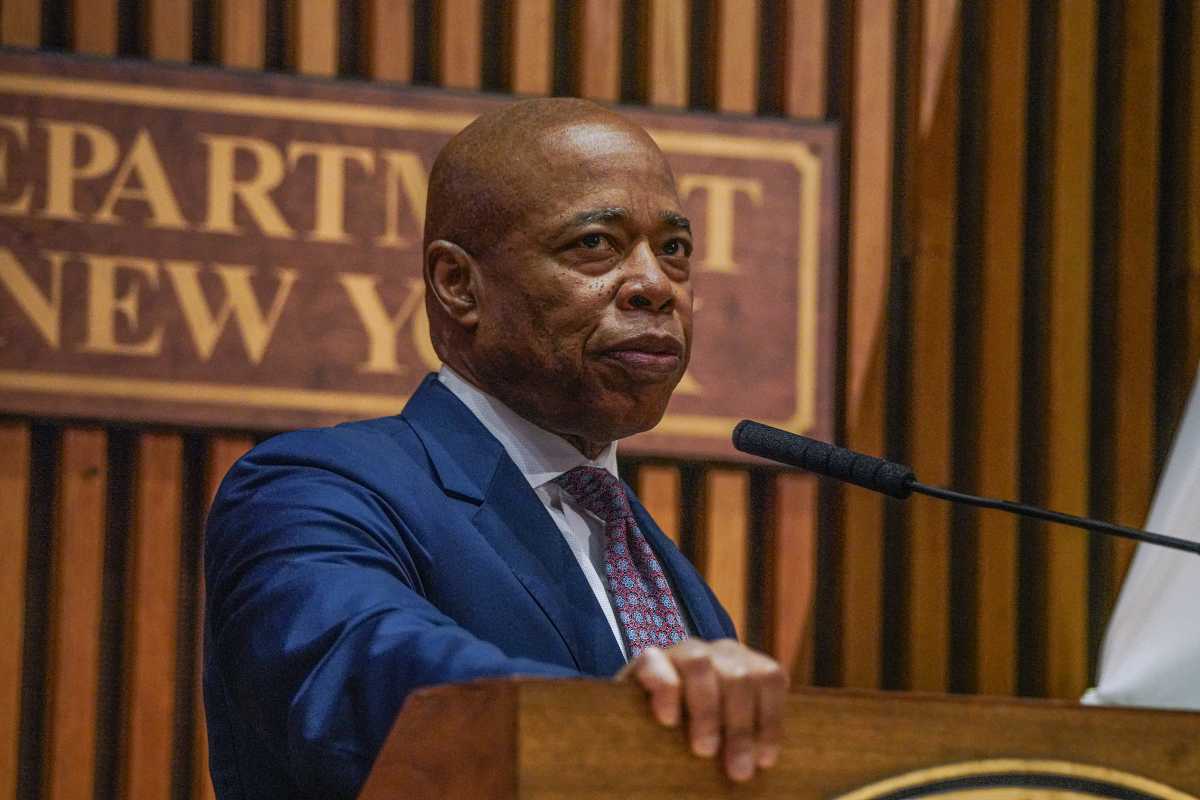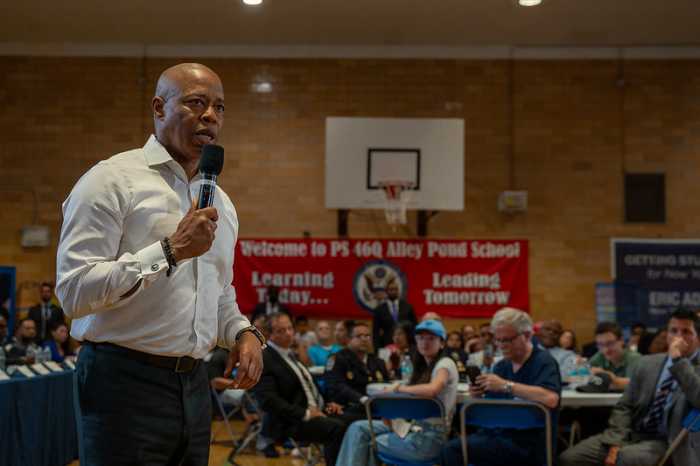Just three of Queens’ 15 council members voted against overriding the mayor’s veto of two heavily contested public safety bills.
Council Members Joann Ariola (R), Vickie Paladino (R) and Robert Holden (D) were among the nine members across the city to say no to the How Many Stops bill, which requires police to document low level interactions with civilians, as well as a separate bill that will ban solitary confinement in city jails. The overrule of the mayor’s vetoes passed the full council by 42-9.
Holden, who represents Ridgewood among other central Queens neighborhoods, posted on X that it was a “bad day for New York” following Tuesday’s council session.
The two bills, which were passed with over two thirds majority approval in December and later vetoed by the mayor in January, resulted in a public campaign led by the mayor to depict them as a danger to public safety. Adams argued that police would be burdened with more “paperwork” and that jails like Rikers would become less safe for both staff and detainees if they went into law.
City Council Speaker Adrienne Adams, who represents Jamaica and other sections of southeast Queens, went on her own campaign to rally support and collect enough votes to overturn the mayor’s vetoes. And the nearly unanimous final tally to pass the two bills, which were coupled together in a one motion, was an indication of the division between the mayor and the city council.
In December’s initial vote to pass the legislation, Council Members Linda Lee (D), in far eastern Queens and Francisco Moya (D), who represents Corona, abstained from the vote. But in the override hearing, Lee and Moya voted to pass the legislation and aligned themselves with the majority.

The council members opposed to the overrides were outspoken in their criticism of their colleagues and said that it would put public’s safety at risk.
“I am saddened more than anything that two disastrous bills have amounted to a game of race baiting by my progressive colleagues. I am saddened that soon we will see the real consequences of this legislation,” wrote Paladino, who represents northeast Queens on X. “Lastly I’m saddened to witness the blatant disrespect and disregard of our police and corrections officers.”
Joann Ariola who represents Rockaway, echoed that sentiment.
“Intro 586-A is an unnecessary reporting bill that will decrease response times and endanger public safety,” wrote Ariola on X. “We cannot continue to destroy law and order in this city.”
But most Queens council members applauded the overrule and said it was a step forward to bring more accountability to policing and corrections.
“Today, I was proud to vote yes to override the Mayor’s veto to make sure that we are ending solitary confinement and supporting the How Many Stops Act so that we have transparency and accountability,” wrote western Queens Council Member Julie Won on X. “As a lawmaker, our job is to legislate on behalf of the people. We are not here to make NYPD officer’s lives easy or more convenient. We are here to make the lives safer and easier for the people we represent, especially our Black and brown neighbors.”
She added that in her district, which includes Queensbridge, Ravenswood and the NYCHA Woodside Houses, the majority of Level 1 stops disproportionately target Black and Latino residents. The bill requires cops to document the casual stops, which are non-accusatory in nature unlike Level 2 and 3 stops.
Public Advocate Jumaane Williams, who sponsored the How Many Stops Bill, said that the “more paperwork” argument put forward by critics of the bill is a misnomer and that recording the stops will take less than a minute on a mobile app.
Speaker Adams said that the police bill was a necessary step to increase transparency.
“By collecting and disclosing data on investigative stops, the How Many Stops Act will bring forth a fuller picture of these encounters, fostering accountability and trust between the police and the communities they serve,” Speaker Adams said. “The Council was also proud to override the Mayor’s veto to ban solitary confinement in city jails and advance a new approach to reduce violence and prioritize safety for both staff and those detained.”




































